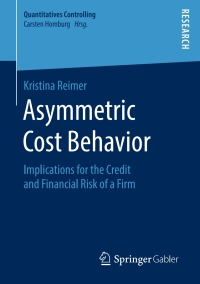Question
Farley, Inc. began operations in 2002. In 2011, the company became a publicly-held. George Blanda, controller, is preparing the 2018 annual financial statements and has
Farley, Inc. began operations in 2002. In 2011, the company became a publicly-held. George
Blanda, controller, is preparing the 2018 annual financial statements and has gathered the following
information pertaining to the accounting for income taxes. For the two years ended December 31,
2018, Farley, Inc., Inc. reported the following revenues and expenses. (No tax information is contained
in these figures.)
Dec 31, 2017 Dec. 31, 2018
Revenues $1,420,000 $1,610,000
Cost of goods sold 438,000 581,000
Operating expenses 326,000 387,000
Other revenue 27,000 27,000
-Tax rates enacted as of the beginning of 2014 are: 2014, 2015, 2016 & 2017, 40%; 2018, 20%;
2019,30% and 2020 & beyond 35%.
-Farley, Inc., Inc. uses the calendar year for both financial statement and income tax reporting.
-Blanda reviewed the open installment sales contracts to determine gross profits acquired on contracts.
During 2017, Farley, Inc. completed 8 contracts with a total gross profit of $250,000 for financial reporting
purposes, whereas only $50,000 of gross profit on installment sales was reported on the 2017 tax return.
The future collection on installment receivables is expected to be $50,000 each year over the course of the
next four years. The installment sale were not made during 2018, but collections on the 2017 contracts
continued to be collected on schedule.
-Farley, Inc., Inc. insures its key officers for death and accidents. The premium on this policy is
$21,000 per year. The premium is expected to remain the same through 2018. During 2018, the
company had received $90,000 check in settlement of a claim against the policy.
-Farley, Inc. collected $45,000 in rent on a building it owns. The rent is for a 5 year period
beginning January 1, 2017.
In 2017, two hundred appliances were sold with a standard three-year warranty option. Morgan's cost
accountant, Wayne DeBach, estimated warranty cost per refrigerator at $70 based on past experience. In
conjunction with the preparation of year-end financial statements, DeBach estimated remaining warranty
expenses would be settled with the following amounts:
Year Amount
2017 $3,000
2018 4,300
2019 6,700
For financial purposes, warranty expenses are recognized at the point of sale, and for tax purposes at the
time paid.
-E. Clapton, production superintendent recently spoke with the plant manager concerning the
status of some of the production equipment. He asked if a new system could be purchased. On
January 8, 2016, Steve Miller, the plant manager, agreed with Clapton and purchased a new
conveyor belt unit for $85,500 with no salvage value. Steve estimated the useful life to be 9
years. For financial purposes, the equipment was depreciated using the straight-line method and
for tax purposes, the machine was depreciated using the following MACRS table:
7-year equipment
14.29%
24.49%
17.49%
12.49%
8.93%
8.92%
8.93%
4.46%
REQUIRED:
A.Identify each of the financial statement and income tax reporting differences listed above for
Farley, Inc., Inc. as either temporary or permanent differences. Explain your answer.
B.For the years ended December 31, 2017 & 2018, compute Farley, Inc., Inc. taxable income and
income tax liability.
C.For the years ended December 31, 2017 & 2018, calculate the deferred tax that relates to the
differences identified in Requirement A.
D.Prepare the journal entries required from the above information for Farley, Inc., Inc. for the years
ended December 31, 2017 & 2108.
E.Indicate the presentation of Deferred Tax and related items on the Balance Sheets for December
31, 2017 & 2018.
F.Indicate the presentation of Deferred Tax and related items on the Income Statements for the
years ended December 31, 2017 & 2018.
Step by Step Solution
There are 3 Steps involved in it
Step: 1

Get Instant Access to Expert-Tailored Solutions
See step-by-step solutions with expert insights and AI powered tools for academic success
Step: 2

Step: 3

Ace Your Homework with AI
Get the answers you need in no time with our AI-driven, step-by-step assistance
Get Started


